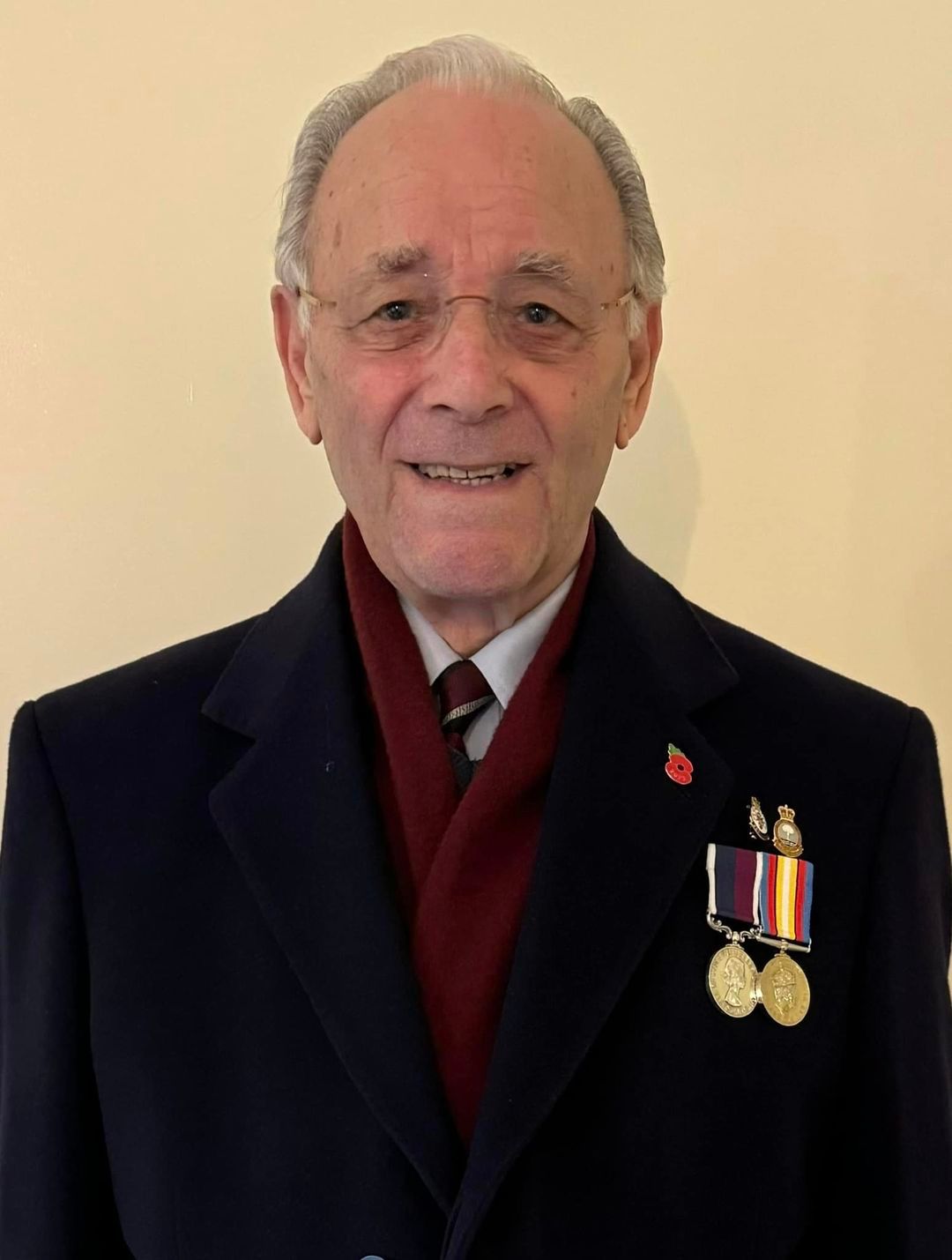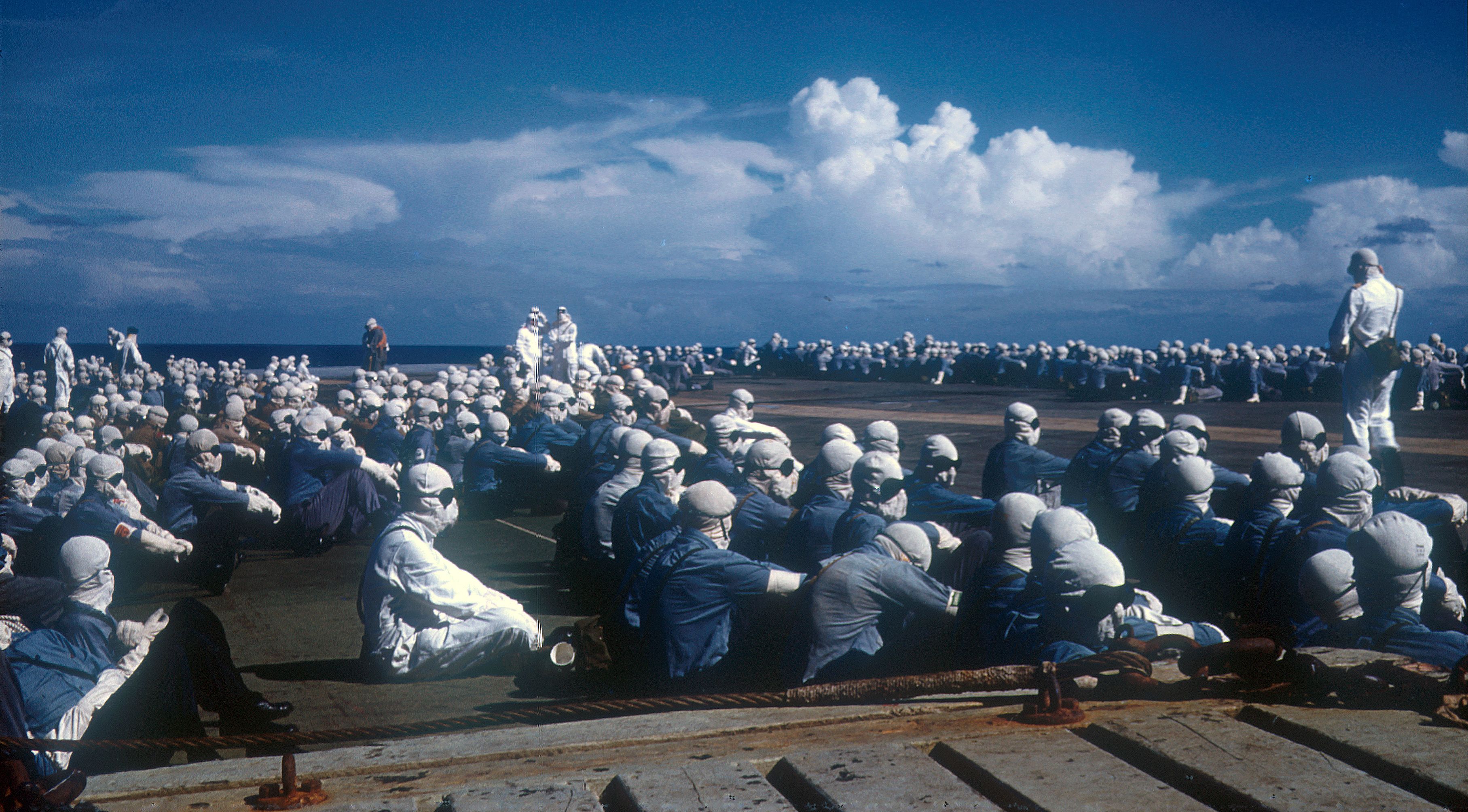
Derek Woolf was born in Highgate, London, in 1939. He was evacuated during the Blitz and raised in Southend-on-Sea. After leaving school at the age of 15 he became an electrical apprentice before joining the Royal Air Force as a regular in 1956. He trained as a medic at the RAF Medical Training Establishment and was posted to Christmas Island in 1957 where he worked at the RAF field hospital, occasionally escorting urgent cases to Tripler Hospital, Honolulu. After returning from Christmas Island, Woolf remained in the RAF for 21 years. Rising through the ranks, he was Commissioned in 1968 and became responsible for administration in RAF hospitals. After leaving, he spent a few years in the NHS before becoming the chief executive of a private hospital in Warwickshire. Woolf currently lives with his wife in Solihull and has a daughter, granddaughter and two great-granddaughters.
Interview extracts
Description
Derek was a regular airman in the Royal Airforce. He was posted as a medic to Christmas Island and Cyprus. Yet it was never his plan to become a medic, as he had initially sought to train as an electrician. Woolf’s experience provides an insight into the lack of choice available to servicemen. His training as a medic, whilst against his wishes, ended up shaping the rest of his life. On Christmas Island, his service proved invaluable. In one instance, he even prevented a fellow serviceman from taking his own life by saving him from swimming off the perilous reef that surrounds the atoll.
This is a short extract from an in-depth interview. Derek Woolf was recorded for the Oral History of British Nuclear Test Veterans project in 2024. The interviewer was Christopher R Hill. This project was run in partnership with National Life Stories and the full interview can be accessed at the British Library.
Transcript
I was stood in the line when a corporal with a clipboard came along, appointing us to our various sections, and he said to me, ‘Electrical mechanic air’. And I protested and said, no, I signed on for four years for ground. He said, no, if you wanted to do ground you should have stood where he’s standing, you’re air. The result of this, I obviously put in a redress of grievance and felt I’d been treated badly, was wheeled in front of the Wing Commander training who told me I was a troublemaker and I could do anything I liked in the Air Force but be an electrician, what did I want to do? I remembered that at the recruit training I’d done a route march across Cannock Chase, had blisters on my heels, I then reported sick, was given the treatment slip by the Medical Officer and sent to the treatment room where a young leading aircraftsman medic sat while all the recruits scrambled getting their own treatment, and then presented their treatment chits to him, who he signed them and then waved them away and went back to his Reader’s Digest. And I thought, that’ll do me for four years. They’ll give me a pen and a Reader’s Digest and I’m happy. It wasn’t to work out like that.
No. [laughs]
[ends at 0:01:16]
Description
Derek Woolf was posted to Christmas Island in 1957 where he worked at the RAF hospital. He occasionally assisted with the medical transfer of patients to Honolulu. In this clip, he recounts giving medical assistance to Indigenous people while on Christmas Island and being rewarded for his work. It was uncommon for veterans to have had extended interactions with the Indigenous population of Christmas Island, making Woolf’s interaction particularly unique. After returning from Christmas Island, Woolf remained in the Medical Service and was commissioned into the Medical Secretarial Branch in 1968. He retired as a flight lieutenant in 1977.
This is a short extract from an in-depth interview. Derek Woolf was recorded for the Oral History of British Nuclear Test Veterans project in 2024. The interviewer was Christopher R Hill. This project was run in partnership with National Life Stories and the full interview can be accessed at the British Library.
Transcript
And he was brought back every day for, I think, almost a month while we treated these wounds that he’d suffered. But I recall the, I recall the aftermath to this when he was cured, when he came back up to the hospital, and the family were with him, and Colin Austin – Colin Austin was the name of the lad I worked with – were called in and then the SMO was there, Senior Medical Officer was there, and the Australian DC, District Commissioner, who said that they want to present you with some gifts. And the gifts were a ceremonial fan and a ceremonial sword. Now, these were made of wickerwork with coloured feathers and shark’s teeth round them. And Colin stepped forward first, and they gave him, and Colin took these two things, and they looked a bit glum, and the DC said to me, ‘When they offer you these, snatch them from them, because it’s a sign that you’re pleased to have them’. So when they proffered the sword to me, I snatched it, but unfortunately he didn’t let go quickly enough, and to this day I have the scar on my finger there where the shark…
From the shark’s tooth?
… teeth ripped open…
Oh my word!
And there was blood everywhere, and they were clapping like mad. So that was my memory of my final day.
Yeah, he really wants to get it. Cut his hand open getting it.
Yes, I really wanted to have it. Anyway, I remember that with clarity.
[ends at 0:01:35]
Description
While talking about health problems suffered by nuclear test veterans, Derek Woolf refers to himself as ‘one of the lucky ones’. This is a common feeling expressed by veterans but Woolf feels this more strongly than most. Due to his position as a medic who treated people on the island he saw the acute mental and physical effects of the tests more directly.
This is a short extract from an in-depth interview. Derek Woolf was recorded for the Oral History of British Nuclear Test Veterans project in 2024. The interviewer was Christopher R Hill. The project was run in partnership with National Life Stories and the full interview can be accessed at the British Library.
Transcript
How did you feel when you got back? I mean did you reflect much on the experience as it being an unusual experience, going to Christmas?
Well, I should think, as I said in my letter to the Birmingham Post, as one of the tiny minority of the population that has ever seen the explosion of and detonation of a hydrogen bomb, yes, it was a very weird experience. But funnily enough, not something that I ever spoke about very much. I mean people knew I’d been on Christmas Island but it’s only really attracted all the attention in recent years because of the claims by people that appear to have suffered from their service. We’ve discussed the medical problems, and having reached eighty-five, I guess I’m one of the lucky ones. And what few medical issues I have pale into insignificance when I consider the problems that so many of the other veterans, or their dependants have suffered. I suspect that’s why I got a little emotional earlier in the interview, it’s just the thought that a lot of good men have died without ever knowing that they have been, their service has been recognised with this medal that was given out.
[ends at 0:01:09]


